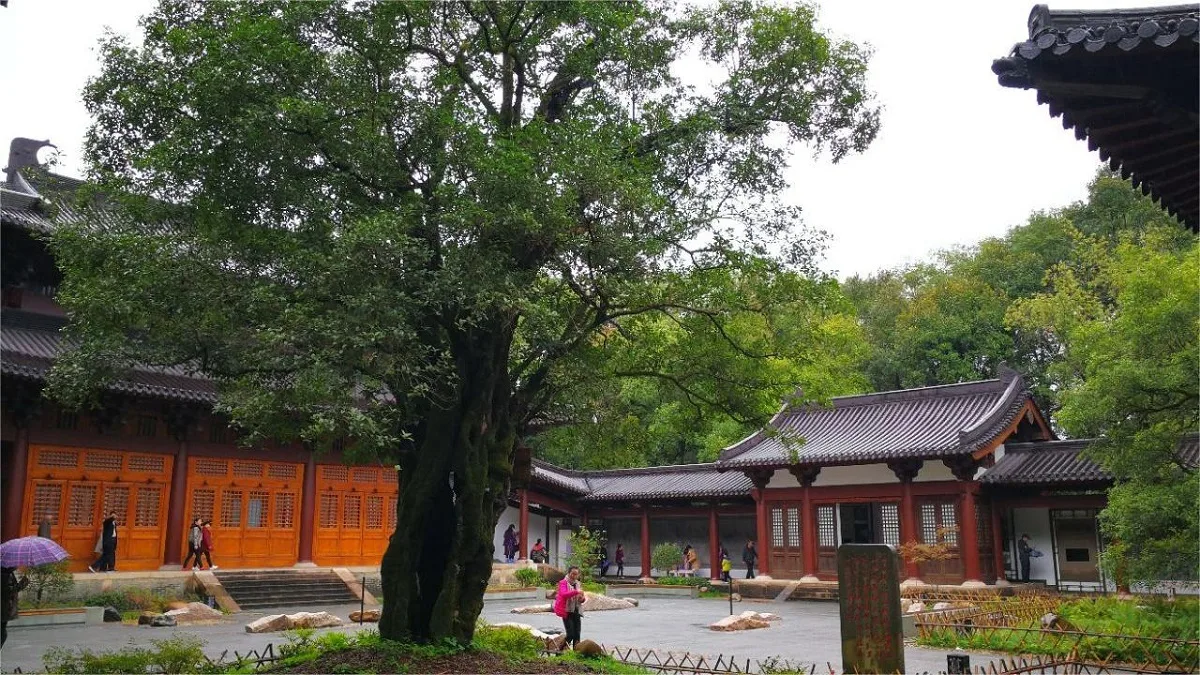Wuyi Palace (武夷宫), also known as Huixian Temple, Chongyou Temple, and Wannian Palace, is a central part of the Wuyi Mountain National Scenic Area. Located at the southern foot of Dawang Peak and the endpoint of the Jiuqu Stream bamboo raft journey, it has been a place for emperors to worship the deity of Mount Wuyi and is one of the six famous temples of the Song Dynasty.
According to the Wuyi Mountain Chronicle, Wuyi Palace was first built during the Tianbao period of the Tang Dynasty (742-755 AD), making it the oldest palace in Wuyi Mountain, with a history of over a thousand years. Initially, the palace was not at its current location but was built on an islet in the first bend of the stream, called Tianbao Hall. In the second year of Baoda during the Southern Tang Dynasty (944 AD), Emperor Li Jing relocated it to its present site and named it Huixian Temple. After its construction, many feudal rulers who believed in Taoism spent heavily on repairs and expansions, renaming it Chongyou Temple.
The palace has been associated with many notable historical figures. Southern Song Dynasty poet Xin Qiji, poet Lu You, and Confucian scholars Liu Zijun and Zhu Xi all served as heads of Chongyou Temple. In the fifth year of the Yuanzhen period (1328 AD), it was renamed Wannian Palace. The temple was destroyed by fire during the Zhengtong period of the Ming Dynasty (1439 AD). Despite multiple government-funded repairs during the Tianshun and Chenghua periods (1457-1487 AD), it could not be restored to its former glory. It was once again destroyed by fire in the fourth year of Jiajing (1525 AD) and rebuilt the following year, becoming Wuyi Palace as it is known today.
Despite various repairs throughout history, Wuyi Palace has suffered significant damage from fires and wars, leaving only a few empty rooms. Currently, it houses two ancient wells, the Wannian Palace, and the Sanqing Hall. It has been developed into a tourist site, featuring a Song Dynasty-style commercial street, a tea house, a memorial hall for Zhu Xi, Zhongshan Hall, and Wanchun Botanical Garden, along with various tourist facilities.
Wuyi Palace’s long history and cultural significance make it a key attraction in the Wuyi Mountain National Scenic Area. Visitors can explore the ancient architecture, learn about the rich history associated with prominent historical figures, and enjoy the beautiful surrounding scenery. The reconstructed areas and modern amenities provide a blend of historical reverence and contemporary comfort, offering a comprehensive experience for those interested in China’s cultural heritage.






